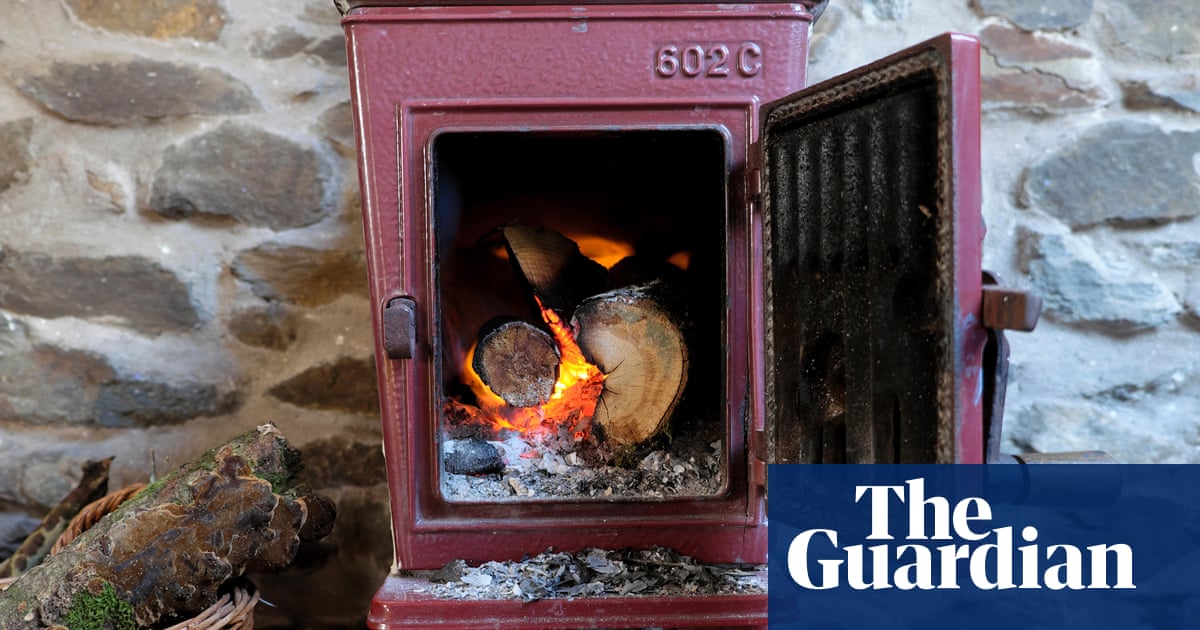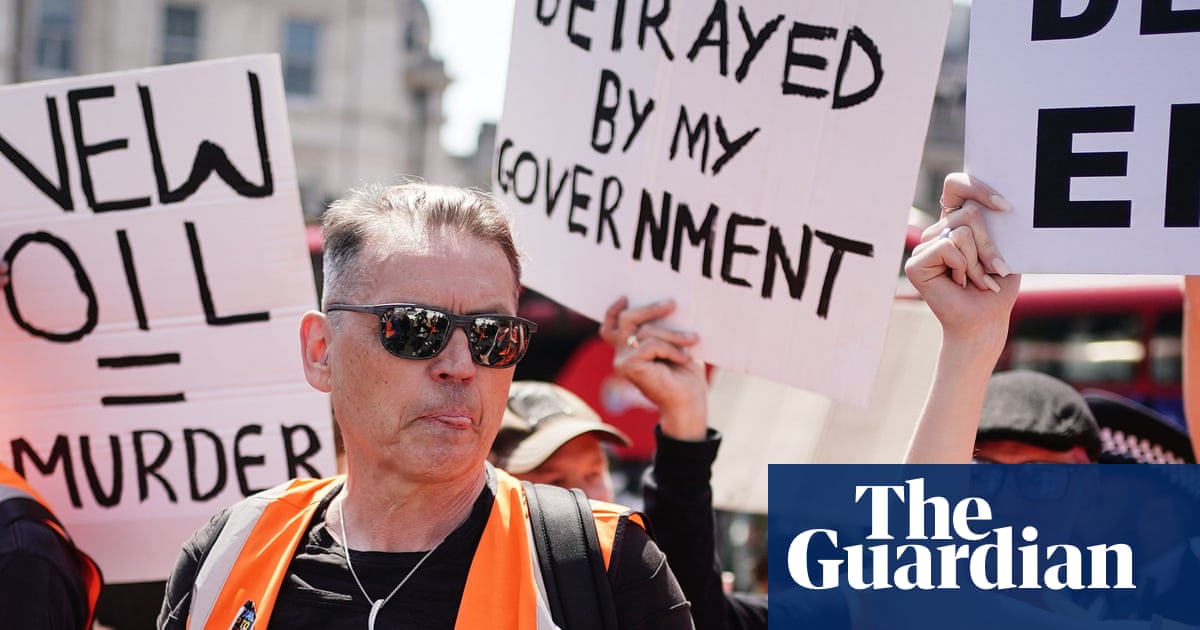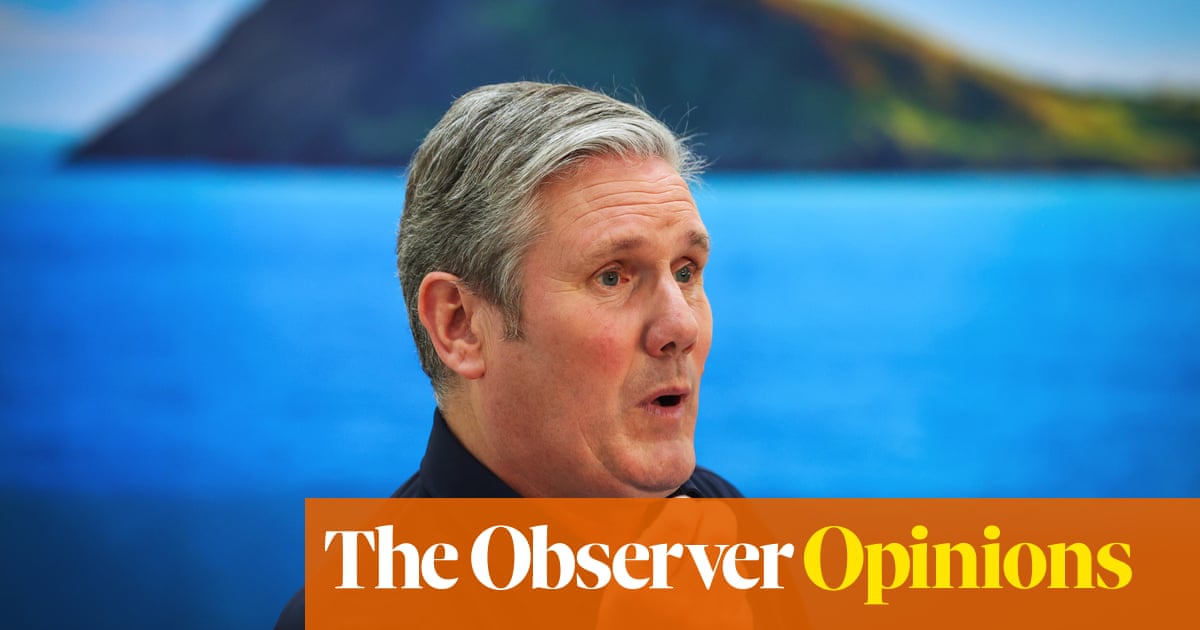
The new Labour government faces a massive task in seeking to repair the UK’s degraded environment and fight the climate crisis. After 14 years in which the Conservative government ducked many of the big decisions, deliberately underfunded regulators, picked culture wars rather than formulated policy, and set out target after target without putting in place the measures needed to meet them, the UK is in a poor state on nearly all green fronts.
Here are the top green issues that Keir Starmer, as well as the energy security and net zero secretary, Ed Miliband, and the environment, food and rural affairs secretary, Steve Reed, will have in their in-trays.
1. Decarbonising electricity
Labour’s headline green pledge is to make the UK into a “clean energy superpower” by decarbonising electricity by 2030. Experts agree this will be at the furthest reaches of possibility – but even if Labour fails to meet the target entirely, getting a substantial way there will be a major achievement.
It will require boosting renewable energy: lifting the ban on onshore windfarms in England that has stymied this cheap form of energy, which Labour announced on Monday; boosting offshore wind when the next round of auctions comes up next month; greenlighting new solar farms; helping households to use less energy; and a programme to encourage businesses to step up their efficiency and adopt new processes.
Most of this is uncontroversial, though changes to the planning rules may be more difficult to put into practice than they were to put in a manifesto. By far the trickiest problem is likely to be the poor state of the UK’s electricity grid infrastructure. It can take a decade just to get a connection to the grid for a new renewable energy facility.
The private sector company in charge, National Grid, has promised about £30bn of investment in the UK over the next five years, but that is at the lowest end of what is likely to be needed. Labour’s new GB Energy, a publicly owned company and investor, will need to get started quickly on this task, possibly by finding ways to generate new private sector investment.
2. Nuclear, carbon capture and hydrogen
The UK’s ageing fleet of nuclear reactors is still essential to providing baseload electricity. But attempts to replace them with new atomic power stations have been beset by delays and massive cost increases. Miliband is known to favour new technology for smaller reactors, but there is no guarantee they will be easier to construct.
Carbon capture and storage technology has been talked about for two decades but there is still none operating in the UK at any scale, and some form of the technology is likely to be needed, as a way of keeping a few gas-fired power stations still operating as the UK reaches net zero by 2050. Labour will have to formulate a more coherent plan on this than the Tories managed.
Hydrogen is another potential headache for Miliband. The gas could be useful in the greening of some industrial processes, but study after study has found it is infeasible for home heating, for safety, cost and practical reasons to do with how hydrogen behaves as a highly flammable gas. Yet home heating is exactly where its supporters, including the gas industry and unions with members working in it, want it – mainly because they believe hydrogen could run through the existing gas grid and modified boilers. Labour will need to explain that it’s the laws of physics and chemistry they are up against.
3. Warmer homes
Draughty, damp and mouldy homes are endangering the health of millions of people on low incomes around the country, yet for the last decade most of the UK has lacked any stable government programme to help households with insulation.
Labour has promised roughly £13bn to help, but this is less than is needed to upgrade all the homes that need it, so should be concentrated on those most vulnerable and most in need. There will also be tougher rules on private landlords, forcing them into improvements. What will be done to help households on middling incomes who could also benefit from insulation?
Heat pumps will also be needed, to move people off gas boilers, but they are still expensive rarities and the UK lacks the skilled workforce needed to install them. Miliband has wavered on an end date for gas boilers – but without certainty from government, the boiler industry is unlikely to make the decisive move to heat pumps needed.
4. Transport
Tory attempts to portray Labour’s transport policies as a “war on motorists” fell flat in the election, saving Labour from a likely line of attack, but at what cost? The party’s transport policies are hardly radical, experts have warned.
Renationalising rail services as franchises come up for renewal is popular, but regenerating the overcrowded, overpriced, unreliable rail service the Conservatives have left behind will take years. Passengers may not see the light at the end of the tunnel before the next election, and the absence of HS2 leaves a major gap.
Pledges to allow communities to take back control of their bus services should help those in rural areas – which voted Labour in unprecedented numbers – and small towns, but it’s far from clear how plans to accelerate bus franchising will work in practice, and whether the funding needed will be available.
5. North Sea oil and a just transition
Labour will halt the process of granting new licences for oil and gas fields in the North Sea. But existing licences will not be revoked, meaning that the fate of some major fields – including Rosebank, Jackdaw and Cambo, as well as many smaller sites – still hangs in the balance. Some of these are unlikely to go ahead because of investor cold feet, but that could change.
More pressingly, Labour must find an answer for the 200,000 people whose jobs depend on the North Sea oil and gas industries. Now the biggest party in Scotland again, as the Scottish National party vote collapsed, Labour will need to convince fossil fuel-dependent communities that a “just transition” can be more than just a neat phrase.
6. Farming and food
This year will bring some of the worst harvests in recent memory, after record wet weather in the spring. Climate breakdown is already wreaking havoc on food production around the world, and Brexit has created its own problems with imports and exports.
Labour has promised a land use framework, but a broader food strategy will be much harder. The last government made faltering attempts, but was hamstrung by the need to claim Brexit as a success, and a reluctance to make market interventions.
The Tories also took the first steps to a post-Brexit subsidy system for farmers, but the environmental land management scheme that was supposed to usher in “public money for public goods” is still not producing either the stable income for farmers or the public goods – clean water, healthy soils, more woodland – that were promised.
7. Water
The most memorable emblem of the 14 years of Tory rule must surely be the unforgettable sight of rivers and beaches deluged with raw sewage. Labour has promised to put water companies into “special measures”, but given the extent of the problem it will take more than a single parliamentary term to fix.
Where will the money come from? Water companies have extracted about £72bn in dividends while allowing their infrastructure to decline to such an extent that Thames Water admitted just before the election that it was a “risk to public safety”, yet they still want to raise bills for consumers. No new reservoirs have been built, and the leaky pipe networks mean that even after a year of record rain there are still threats of droughts this summer.
Campaigners hope that Labour in power will be tougher with water companies than it had the courage to be while fighting for election. But the government will also need to take on farmers, who are responsible for just as much pollution as water companies, and who have largely escaped legal sanction as the government gutted its watchdogs in the name of austerity.
8. Air pollution
Between 28,000 and 36,000 people across the UK die prematurely every year because of air pollution, and it blights the lives of hundreds of thousands more. Air pollution stunts children’s lungs, mars their cognitive abilities, aggravates asthma, and may hasten dementia. Yet the Tories concluded that reaching the EU’s standards on air quality was too difficult, and used Brexit to delay tackling filthy air for a decade.
Labour is encouraging drivers into electric cars instead of petrol and diesel, while boosting walking and cycling, and in some areas local councils have put in controls such as low-emissions zones to improve the air. But a nationwide strategy will have to look further than cars, to sources of air pollution from farming, and that fast-rising source of emissions – wood-burning stoves. Will its thumping majority give Labour the courage to take on what has become for many people a middle-class fashion accessory? The science is clear: they should.
9. Nature
Wildlife populations have crashed across the UK in recent decades, falling about a fifth since 1970, and with about one in six species threatened with extinction. Intensive farming has played a leading role, but urbanisation and pollution have also been important factors.
Reed pledged before the election that he would halt and reverse this decline, and fulfil the promise of protecting 30% of the UK’s land and seas. This will be hard to do without taking on the farming lobby.
Labour must also make the countryside and natural world more accessible to the public. This will bring huge benefits, to health and wellbeing as well as to nature.
10. International leadership, including climate finance
The UK has been sorely missed in the climate fight on the world stage and Miliband has pledged to fill a “vacuum of leadership”. But if leaders from the global south are to see the UK as a genuine partner, they will also need to see clear new financial commitments from this government. The next UN climate summit, Cop29 in Azerbaijan this November, is all about raising climate finance for poorer nations, so to show up empty-handed will let the whole world down. Labour is being pushed to meet its commitment to spend £11.6bn to help countries adapt and respond to climate change, and to reverse the changes made to how the UK’s climate finance is counted.
11. Protest
The Conservative government cracked down on climate protesters, to the point of fierce criticism from the UN rapporteur on environmental defenders. Labour has not promised to roll back these rules or change the approach, to the consternation of civil liberties experts. Expect flashpoints in the coming months – climate protesters are not going away any time soon.












